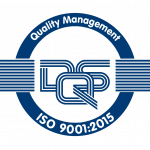Search Other Materials
Polyethylene Thermoplastic Characteristics
Polyethylene (PE) is the most widely used thermoplastic polymer for fabricated parts and components. It is available in a variety of grades and formulations to suit different needs. In general, polyethylenes offer excellent chemical and impact resistance, electrical properties and low coefficient of friction. It is considered a dielectric material. In addition, polyethylenes are lightweight, easily processed and offer near-zero moisture absorption. See details of its material properties in the chart below.
There are four categories of polyethylene thermoplastic material based on density/property: low, medium, high (HDPE) and ultra-high molecular weight polyethylene. Characteristics of these include:
- Economical
- Low co-efficient of friction
- Excellent chemical resistance
- Stable in cryogenic environments
- Good impact resistance
- FDA/USDA approved (HDPE)
- Resistant to many solvents (HDPE)
- Good fatigue and wear resistance (HDPE)
- Zero water absorption (HDPE)
Applications for Polyethylene (PE) Thermoplastic
- Conveyor guides
- Chute liners
- Chemical holding tanks
- Food processing parts
- Medical equipment
- Packaging applications
- Conveyor wear strips (HDPE)
- Piping systems (HDPE)
- Liquid dispensing equipment (HDPE)
- Marine components (HDPE)
Contact a Dielectric Manufacturing knowledge expert to discuss the use of polyethylene for fabrication of your plastic parts, or to purchase polyethylene material.
Call 800-367-9122 or email sales@dielectricmfg.com.
Polyethylene Material Properties
Dielectric Manufacturing, Richfield, Wisconsin USA dielectricmfg.com Polyethylene Material Properties Provided By Dielectric Manufacturing, Richfield, Wisconsin
Property Metric units English units
General
Density 952 - 965 kg/m^3 00.344 - 0.0349 lb/ft^3
Mechanical
Yield Strength 2.62e7 - 3.1e7 Pa 3.8 - 4.5 ksi
Tensile Strength 2.21e7 - 3.1e7 Pa 3.21 - 4.5 ksi
Elongation 11.2 - 12.9 % strain 1.12e3 - 1.29e3 % strain
Hardness (Vickers) 7.75e7 - 9.71e7 Pa 7.9 - 9.9 HV
Impact Strength (un-notched) 1.9e5 - 2e5 J/m^2 90.4 - 95.2 ft.lbf/in^2
Fracture Toughness 1.52e6 - 1.82e6 Pa/m^0.5 1.38 - 1.66 ksi/in^0.5
Young's Modulus 1.07e9 - 1.09e9 Pa 0.155 - 0.158 10^6 psi
Thermal
Max Service Temperature 113 - 129 °C 235 - 264 °F
Melting Temperature 130 - 137 °C 266 - 279 °F
Insulator or Conductor Insulator Insulator
Specific Heat Capability 1.75e3 - 1.81e3 J/kg °C 0.418 - 0.432 BTU/lb. °F
Thermal Expansion Coefficient 1.06e-4 - 1.98e-4 strain/°C 59 - 110 µstrain/°F
Eco
CO2 Footprint 1.95 - 2.15 kg/kg 1.95 - 2.15 lb/lb
Recyclable Yes Yes





